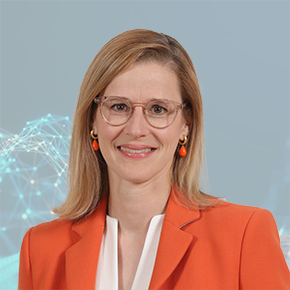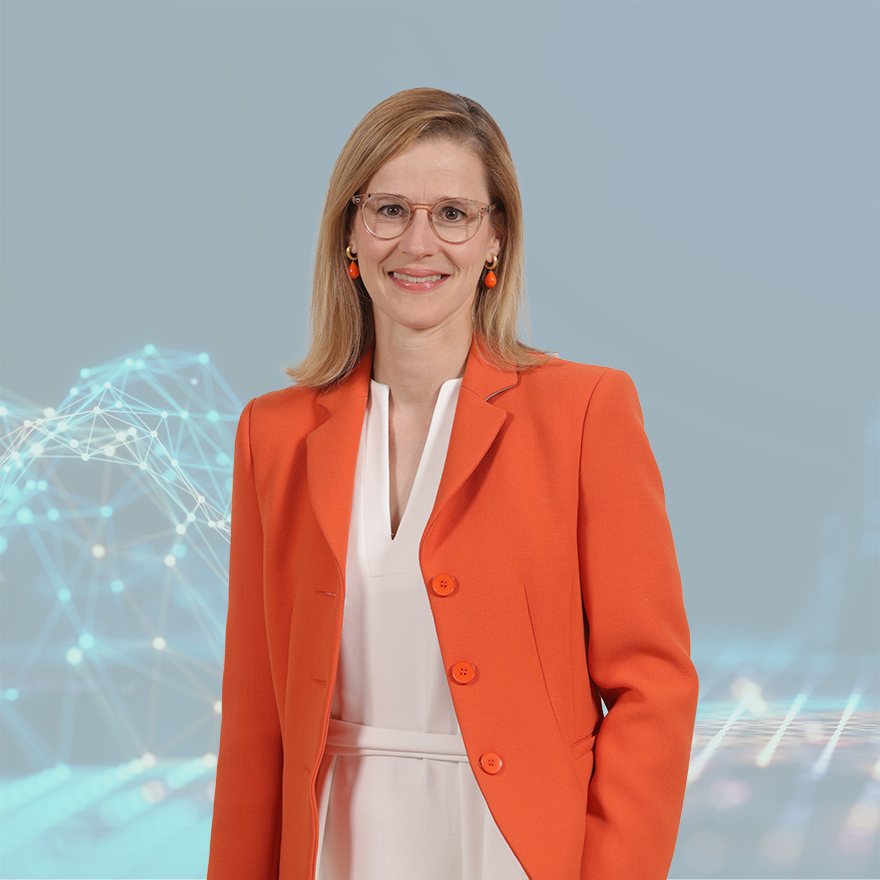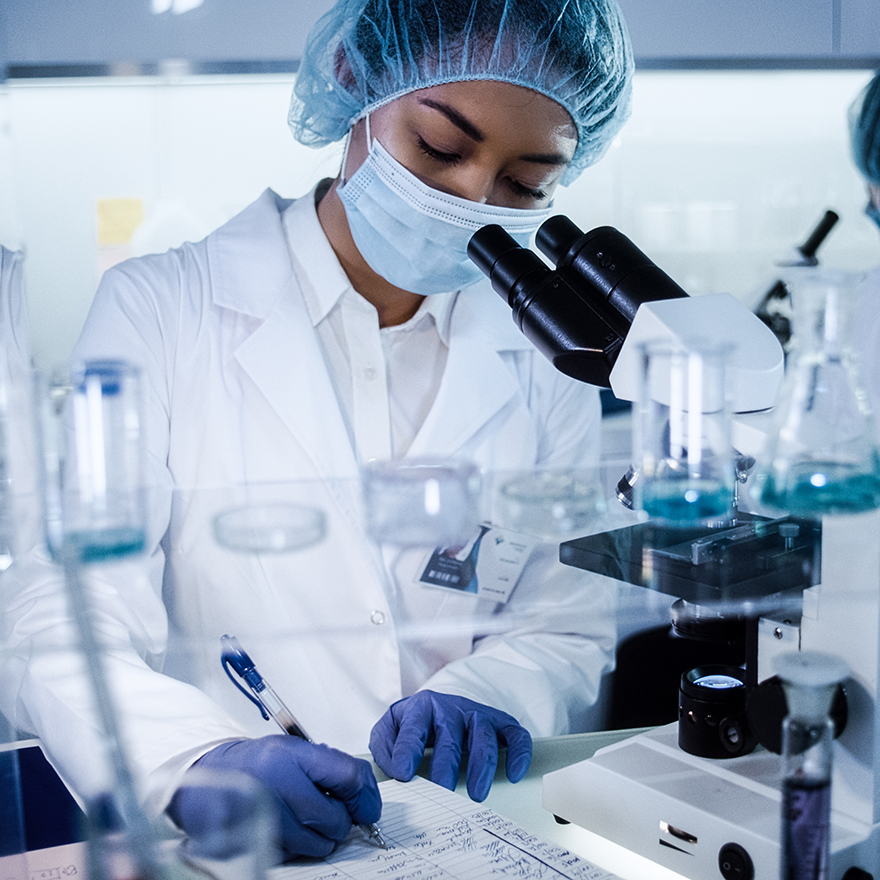Digitalisation is accelerating changes to society and enabling innovation in many areas. In the healthcare sector in particular, for the health of the people, it is important to enable and promote these innovations. Dr. Wiebke Löbker is head of the Innovation Office and explains what the BfArM is doing about this.
“We are always open to discussions with researchers and developers,” says Wiebke Löbker and, with this, explains the special spirit in the BfArM's Innovation Office. With the drive in development, start-ups and research facilities should also quickly master licensing and bringing to market. To achieve this, it‘s important to involve those responsible in the discussions as early as possible. Among other things, the Innovation Office therefore offers “kick-off meetings” in the early phases of drug and medical device development, in which the further route forward is discussed and best planned.
“Our goal is to seize all opportunities which can improve the healthcare of patients,” explains Löbker. As a regulatory authority, the BfArM must of course communicate and observe the statutory provisions. “We don‘t just provide information about the regulatory hurdles, but support our partners, tackle the hurdles together and provide guidance on the right way forward so that safe and effective innovations get to the patients quickly,” says Löbker. What is also important for this is for developers to be familiar with and utilise the advisory and support opportunities. “We therefore actively approach researchers and incubators and don‘t just wait until questions come our way. We are always delighted to receive new contacts and having our finger on the pulse of the latest ideas in healthcare,” says Löbker. The employees at the Innovation Office are on the go with a wide spectrum of topics and are therefore able to provide wide-ranging support. Not only are they open to ideas, sometimes they are even the driving force behind them.
EU Innovation Network
In order to promote the innovations in the best way, the Innovation Office also cooperates with the other national authorities in a Europe-wide network. The EU Innovation Network (EU-IN) was launched in 2015 to strengthen the cooperation between the National Competent Authorities (NCAs) and the European Medicines Agency (EMA) in regulatory issues with regard to new therapies and technologies. The aim of the EU Innovation Network is to improve the currently available regulatory support for drug developers at a national and EU level, and to make it more attractive to innovators. Gaps in early regulatory support need to be closed, a platform should be offered for exchanging tried-and-tested procedures, and cooperation between innovators requires reinforcement. As a spin-off of the EU-IN network, the STARS Consortium (Strengthening Training of Academia in Regulatory Science) was founded in 2019, which looks into precisely these gaps and challenges and works on making improvement proposals.
We have a mindset which is open to innovation and we understand change as an opportunity for our future configuration.
Dr. Wiebke Löbker, Head of the Innovation Office/Change Management Office

STARS for researchers
Together with her innovation team, Löbker headed the STARS project. The project, designed over three years, for the first time brought delegates from national competent authorities in 18 EU members states, including the EMA, as well as other players in the licensing of drugs, together around one table. “It was about bringing the academic and regulatory world together.” The aims were to analyse the knowledge and interests of academic research, to improve the advisory offerings of the authorities, and to work through targeted training programmes for the scientists. The now published paper – STARS Common Strategy – contains 21 concrete proposals and successful examples for already existing support offerings from Member States. For example, recommendations are being made to already offer researchers training in the fundamentals of drug licensing at the start of their careers, to establish networking opportunities and better information offers as well as to already take into account licensing-related aspects during the funding announcements and evaluation procedures. “With this project, as a network, we have come a good step closer in our aim of making the cooperation and support for researchers even more conspicuous.”
Weak signals on the horizon
Innovations require exchange with as many stakeholders as possible, and an openness for other ways of thinking and new ideas. Not only does the BfArM invite all researchers to make contact with the Innovation Office as early as possible, it also takes on the job of searching itself: “Horizon Scanning” is the process which identifies “Weak Signals” for emerging trends and evaluates the impact they could have on our tasks and work in the BfArM,” says the Innovation Office, explaining the process. The employees from the Innovation Office are themselves actively involved with the “Horizon Scanning” method. They aim to identify topics that are not yet being widely discussed, and looking as far into the future as possible. “We are in contact with many drivers of innovation and we perform research to identify trends and to trigger necessary change in the BfArM for this so that we, as the developers of tomorrow, can point others in the right direction,” explains Löbker. Of course, the employees of the Innovation Office also benefit from their contact with start-ups and researchers. “Healthy ageing” is currently one of the expected trends: “The population is ageing, so this will be a common topic, whether in the digital field or in the prevention of Alzheimer‘s,” explains Löbker. When topics are identified, the BfArM prepares itself for this, for example, by looking for experts among the employees or adding to them. Changes in the BfArM itself are therefore also an important building block for innovation.
Guarantee for ideal healthcare
“In a continuously and increasingly fast changing environment, we, the BfArM, want to identify challenges at an early stage and convert them into opportunities by actively approaching changes and managing them successfully,” is the explanation of change and project management, which forms a further pillar in the department. The focus is on sustainable and long-term change, which is relevant for achieving the goals. This extends from process change through to culture and communication aspects. A trigger for the change includes digitalisation and artificial intelligence, which are incorporated into various BfArM projects. The required changes are strategically designed and an extensive catalogue of measures benefits the BfArM vision alongside the ongoing activities: The BfArM is a guarantor for ideal healthcare for all people in Germany and the rest of Europe.
Frontrunner in healthcare
The pressure of the pandemic also accelerated processes at BfArM to protect the health of citizens. The Innovation Office is now drawing findings from this for the BfArM, and is analysing which changes can also be transferred into everyday situations to ensure that it is also well set up for the continuing dynamic environment in the future. “To do this, we are abandoning the silo mentality, working more and more cross-functionally and closely together, promoting collaboration and looking to see where we can exploit synergies,” explains Löbker. Löbker and her team are designing and accompany change projects for continuous ongoing development so that the BfArM continues to be the “frontrunner in healthcare provision in an inspiring working environment.” The work of the BfArM thus allows innovations to flourish – or as Löbker summarises: “We have a mindset which is open to innovation and we understand change as an opportunity for our future configuration.”
Dr. Wiebke Löbker
Studied pharmacy. From 2009 to 2011, she was scientific officer at the Institute for Pharmacology and Toxicology at the Free University of Berlin. From 2011 to 2016, she was a consultant and team coordinator in the “Medicinal products” department of the Federal Joint Committee with a focus on early benefit assessment. Since 2016, she has been working as head of the Innovation Office/Change Management Office at the BfArM, as well as personal assistant to the President.











